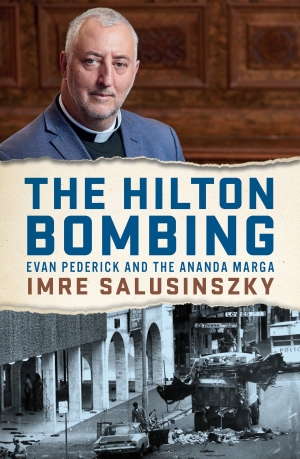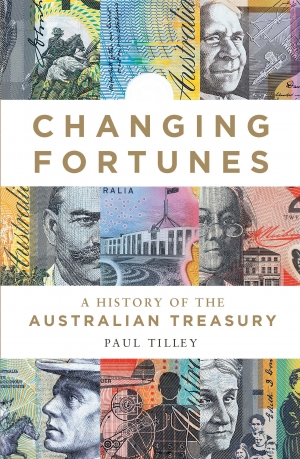Melbourne University Press
Elizabeth Bryer reviews 'Meanjin Quarterly: Volume 79, Issue 2' edited by Jonathan Green
In the winter issue of Meanjin, some of Australia’s best writers, including Sophie Cunningham, Lucy Treloar, and Jennifer Mills, grapple with the climate emergency and our relationship to place in these days of coronavirus and the summer that was.
... (read more)Frank Bongiorno reviews 'Becoming John Curtin and James Scullin: The making of the modern Labor Party' by Liam Byrne
John Curtin and James Scullin occupy very different places in whatever collective memory Australians have of their prime ministers. On the occasions that rankings of prime ministers have been published, Curtin invariably appears at or near the top. When researchers at Monash University in 2010 produced such a ranking based on a survey of historians and political scientists, Curtin led the pack, with Scullin rated above only Joseph Cook, Arthur Fadden, and Billy McMahon. Admittedly, this ranking was produced before anyone had ever thought of awarding an Australian knighthood to Prince Philip, but the point is clear enough: Curtin rates and Scullin does not.
... (read more)Leonie Kramer reviews 'This Is the ABC: The Australian Broadcasting Commission, 1932–1983' by Ken S. Inglis
The title of Ken Inglis’s book is a poignant irony, reflecting the transience of history itself. For its publication coincided exactly with the death of the Commission, and the birth of the Corporation, and with hindsight one can say that it should have been called That was the ABC, thus creating a pleasant symmetry with That Was the Week That Was. But Inglis did his best to defeat time by bringing the history up to the federal election of 5 March 1983, edging his way as near as possible to the date he would like to have reached.
... (read more)Kieran Pender reviews 'Secret: The making of Australia’s security state' by Brian Toohey
Cass Sunstein, a noted American constitutional scholar, once lamented: ‘The notion that the government may control information at its source is at odds with the idea that the purpose of a system of free expression is to control the conduct of representatives.’ In a liberal democracy – supposedly of the people, by the people, for the people – political opacity is inconsistent with the central premise of government.
... (read more)Jacqueline Kent reviews 'The Hilton Bombing: Evan Pederick and the Ananda Marga' by Imre Salusinszky
Since 9/11 and all its attendant horrors, the story of the bomb that exploded outside Sydney’s Hilton Hotel early on the morning of 13 February 1978, killing three people and injuring nine others, has largely been cast aside. However, it is considered the worst terrorist act perpetrated on Australian soil. It had wide ramifications at the time, and murky issues still surround it.
... (read more)Geoffrey Blainey reviews 'Changing Fortunes: A history of the Australian treasury' by Paul Tilley
Paul Tilley classes the Treasury, now housed in Canberra, as ‘one of Australia’s great enduring institutions’. It began humbly in 1901, in a smallish stone building that still stands at the corner of Collins and Spring Streets in Melbourne. That handsome structure appears to be just about the correct size for its initial staff of five. Just across the street stands a statue of Sir William Clarke, a rich pastoralist of that era who, had he sold some of his properties and sheep, might easily have paid for all the salary cheques signed by the nation’s Treasury in its first weeks.
... (read more)Bank bashing is an old sport in Australia, older than Federation. In 1910, when Labor became the first party to form a majority government in the new Commonwealth Parliament, they took the Money Power – banks, insurers, financiers – as their arch nemesis. With memories of the 1890s crisis of banking collapses, great strikes, and class conflict still raw, the following year the Fisher government established the Commonwealth Bank of Australia, ‘The People’s Bank’, as a state-owned trading bank offering cheap loans and government-guaranteed deposits to provide stiff competition to the greedy commercial banks gouging its customers.
... (read more)In the spring of 2003, a person from Hilary McPhee’s past got in touch with her. McPhee did not remember the woman’s name but recognised her immediately when they met for coffee. At high school they had played hockey together for a team called the Colac Battlers. The woman had been working for years as a personal assistant at a palace in Jordan ...
... (read more)It was a great moment in Australian history when William Cooper walked to the Australian parliament to object to the treatment of Jews in Germany during World War II. At the time, the British and Australian parliaments were ambivalent about the atrocities occurring across Europe ...
... (read more)Like many of us, I think of the book as the great vehicle for the sophisticated expression of our humanity. The world needs the book more than ever...
... (read more)









